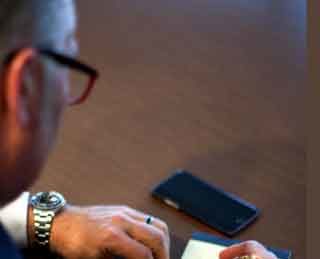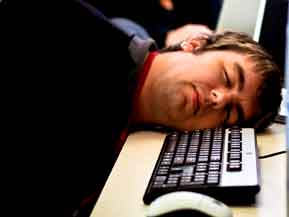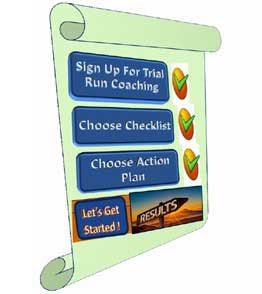Telehealth Reverse Diabetes With Executive Cognitive Control | Free Trial In Texas

It’s the Smart Thing to do. Smart because Good Health improves mental ability. Makes you smarter. Smart because inconvenience now is small compared to disability and financial cost later.
A Really Good Deal! You should act now.
As Chief Executive Officer, you can make a decision. What happens next you don’t know until you try.
Visit our website: www.herdhealthcare.com, or call us at 713-669-0271 to get started on an action plan for good health.
First, A Decision
INFORMATION
As CEO, you see if there’s a problem or an opportunity you can do anything about.
The information you need to know is how severe Overweight/obesity and Type 2 Diabetes is for you in the future. That must be compared to the cost and inconvenience for change. You also need to know how likely efforts made to change will affect the outcomes.
The problem of Overweight/obesity and Type 2 Diabetes for you is something like the problem of Climate Change for everyone. In both issues, there are 3 perspectives to think about.
For Current Climate Change (CCC):
 1. CCC is a brief variation. Not dangerous enough to worry about, or
1. CCC is a brief variation. Not dangerous enough to worry about, or
2. CCC is a trend that is dangerous but not our fault. Anyway, there’s nothing we can do about it, or
3. CCC is a dangerous trend, that’s at least partly our fault and we’re making it worse. Furthermore, we can slow it down or even reverse it by coordinated action.
For Overweight/obesity and Type 2 Diabetes (OODM):
1. OODM is just part of getting older. Hope for the best, or
2. OODM is what we’re born with and surrounded by. Nothing much we can succeed in doing about it. Anyway, life will end sometime whatever we do, or
3. OODM causing eventual illness, disability and cost are dependent upon what we do now. Reversing them is possible.
The evidence concerning Overweight/obesity and Type 2 Diabetes definitely favors #3. Reversal and Prevention absolutely are possible. However, the majority of people with OODM continue in path #1 or #2.
RESOURCES
 Time required to get started is not as important as spending time consistently every day. The time it takes to measure and record progress day by day probably requires no more than 10 or 15 minutes. Eventually, time for moderate exercise will require about 30 minutes a day.
Time required to get started is not as important as spending time consistently every day. The time it takes to measure and record progress day by day probably requires no more than 10 or 15 minutes. Eventually, time for moderate exercise will require about 30 minutes a day.
The time gained eventually by avoiding illness and disability will be ten-fold more than time spent initially. As CEO, time spent now in comparison to time gained in the future is part of your consideration.
Costs of digital equipment, mobile units and internet charges are expensive. However, the Diabetes Prevention and Remission program does not require any equipment or program apps beyond what most of us have for all our other digital technology services.
BARRIERS
There’s always something making change difficult.
In considering Current Climate Change, the barriers have controlled personal, local, national and global responses. There’s the cost for alternative sources of energy. There’s special interest groups protecting current activities. Over all there is disagreement about actions to take that require cooperation and coordination.
In considering Overweight/obesity and Type 2 Diabetes, there are many barriers to change. Family and friends may be supportive but they may resent and obstruct personal efforts. In industry, special interest groups and community preferences keep things pretty much as they are.
Even the healthcare industry is slow to support good health efforts.
REWARDS
The most important rewards are the immediate benefits from good health.
It’s what happens right away that sustains efforts to improve health. Expect good results within the first 3 months of improving health practice.
Physical improvements will be the most obvious. Success will feel good. Strength and endurance will improve. Work on the job, at home and in the community will be easier and more productive. Sexual function will improve. Family and friends will tell you how good you look!
Mental ability will improve just as dramatically as physical ability. Memory will be more reliable. Problem solving will be faster and more effective. Decision making will be easier and more accurate. You’ll be more proficient in everything you do.
Mental health will be stronger and more stable. Expect fewer episodes of anxiety and depression. Improving health practice is the most effective treatment for PTSD. Life will be more enjoyable.
 Quality of sleep will include more time asleep without interruption and fewer awakenings. Better sleep will help protect mental health, physical health, quality of life, and safety. You’ll be more alert and sharper during the day.
Quality of sleep will include more time asleep without interruption and fewer awakenings. Better sleep will help protect mental health, physical health, quality of life, and safety. You’ll be more alert and sharper during the day.
Less Expense for healthcare. Less money paid for expensive medications like insulin and supplies for testing. Fewer physician visits. Hospitalization less likely. Improved earning potential. Less loss of time from work at home or on the job. That all puts more money in your pocket.
Long-term Rewards will be substantial. Expect to gain additional years of good health and spend less for treatment of complications.
Ultimately, the long-term rewards will be even more dramatic than short-term rewards. It’s just that efforts to improve health practice now will depend on immediate benefits. We’ve learned that short-term rewards are more effective than prospects of better health sometime in the future.
MOTIVATION
As CEO, your decision rests on how desirable the option is to change. Your executive cognitive function is in charge only briefly from time to time. Most daily activity is governed by habitual activity established from prior experience.
Previous experience also governs your reaction to any change. You don’t like to fail. Something you already tried before and didn’t accomplish makes you leery of trying again. Especially if others have seen you try and fail.
Critical to any decision for making change is your ability to separate executive cognitive assessment from your innate gut reaction to do what you always have done.
Ultimately, your subconscious automatic reactions will adjust and follow your executive cognitive decisions. But it won’t be right away.
RESISTANCE TO CHANGE
Everything we do is very much the same every day. Subconscious brain activity stores all our previous experience. We come to expect what worked well before will work again and we remember how. Our attitudes and actions are automatic. We don’t even think about it.
New executive cognitive control commands are filtered through memory of our previous experience. You can command something but clearing it for new action requires more than you might expect.
Your brain is organized like a corporate enterprise. Everything gets done by employees with specific skills doing routine work. Everybody has an automatic response to familiar situations. They prefer doing what they are accustomed to doing. A change in routine requires time and effort. What’s been decided won’t just happen.
 The network of connections from prior experience is huge compared to support for anything you’re likely to command. How do you teach an elephant to do something different? There’s got to be something in it for the elephant. It’s up to the CEO to figure that all out.
The network of connections from prior experience is huge compared to support for anything you’re likely to command. How do you teach an elephant to do something different? There’s got to be something in it for the elephant. It’s up to the CEO to figure that all out.
PRIORITY
There’s only so much anyone can do! We all have things to take care of that can’t be ignored. There are commitments we’ve made. We have time and money invested in other things. We’re surrounded by pressures we can’t control.
You just have to do the best you can.
You are most likely to succeed in reversing Overweight/obesity and Type 2 Diabetes if that’s one of your top 2 or 3 major objectives in life.
Action Plan
STATEMENT
Define your objective. Write it down. Tell it to someone you care about and who cares for you.
STARTING
 Give Good Health a try. Maybe you’ll like it.
Give Good Health a try. Maybe you’ll like it.
Never mind about how long it could take to reverse Overweight/obesity and Type 2 Diabetes. Just promise yourself you’ll give this project 3 months to get started.
That will be enough time for short-term rewards to kick in.
REPETITION IS KEY TO SUCCESS!
The most Important Rule is to Do Something Every Day. Keep doing things you know you can do. With practice, you’ll get better.
Keep testing to find things you can add to your skill set. Deliberately try something that’s a little harder to do. Even when you know it’s going to take some time to get good at it.
Eventually, all your Good Health skills will become automatic. You won’t have to think about them anymore.
CHECK PROGRESS
Right at the start, make some measurements of your health status. Use methods that give Numerical Values you can use to assess Progress.
Here are some examples.
• Metabolic status: Body weight and maximum Waist Circumference
Balance between calories taken in and calories used for work
• Exercise status: Six-Minute Walk Test
Measure how far you can walk and total steps taken in 6 minutes
You can use these test results to Check Progress.
Engage Subconscious Automatic Cognitive Apps
Subconscious cognition can be harnessed. You can influence information processing that goes on all day and all night, even when you’re sleeping. Imagined situations, creative ideas and written descriptions of desired actions are processed even when you’re attending to other things.
Think about the wonderful things you expect Good Health to bring. Your subconscious cognition will pick that all up. Don’t spend any time thinking about reasons you can’t achieve success in reversing Overweight/obesity and Type 2 Diabetes. Let your brain work on something you desire, not something you fear.
We are pleased to share our blog articles with you, and we are always interested to hear from our readers. Our website address is: www.herdhealthcare.com





